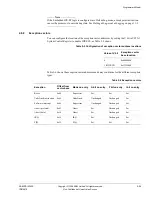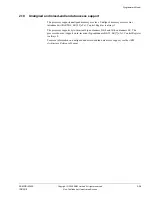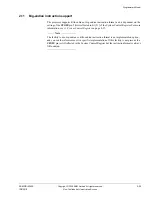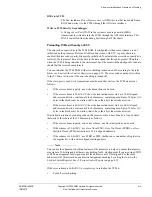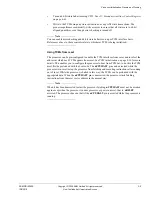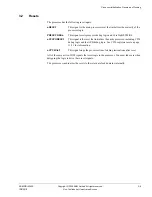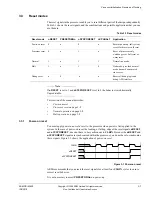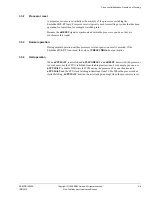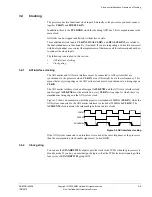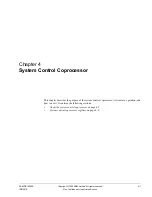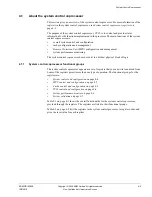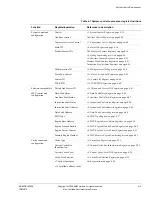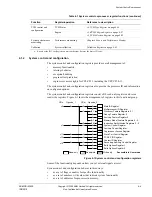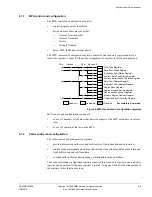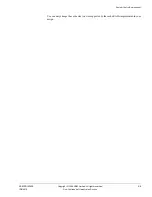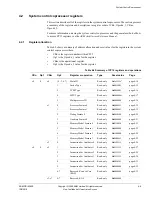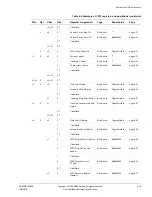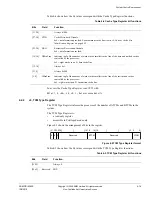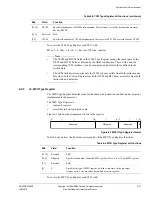
System Control Coprocessor
ARM DDI 0363E
Copyright © 2009 ARM Limited. All rights reserved.
4-2
ID013010
Non-Confidential, Unrestricted Access
4.1
About the system control coprocessor
This section gives an overview of the system control coprocessor. For more information of the
registers in the system control coprocessor, see
System control coprocessor registers
on
page 4-9.
The purpose of the system control coprocessor, CP15, is to control and provide status
information for the functions implemented in the processor. The main functions of the system
control coprocessor are:
•
overall system control and configuration
•
cache configuration and management
•
Memory Protection Unit
(MPU) configuration and management
•
system performance monitoring.
The system control coprocessor does not exist in a distinct physical block of logic.
4.1.1
System control coprocessor functional groups
The system control coprocessor appears as a set of registers that you can write to and read from.
Some of the registers permit more than one type of operation. The functional groups for the
registers are:
•
System control and configuration
on page 4-4
•
MPU control and configuration
on page 4-5
•
Cache control and configuration
on page 4-5
•
TCM control and configuration
on page 4-6
•
System performance monitor
on page 4-6
•
System validation
on page 4-7.
Table 4-1 on page 4-3 shows the overall functionality for the system control coprocessor,
provided through the registers. The registers are listed in their functional groups.
Table 4-2 on page 4-9 lists the registers in the system control processor, in register order, and
gives the reset value for each register.

